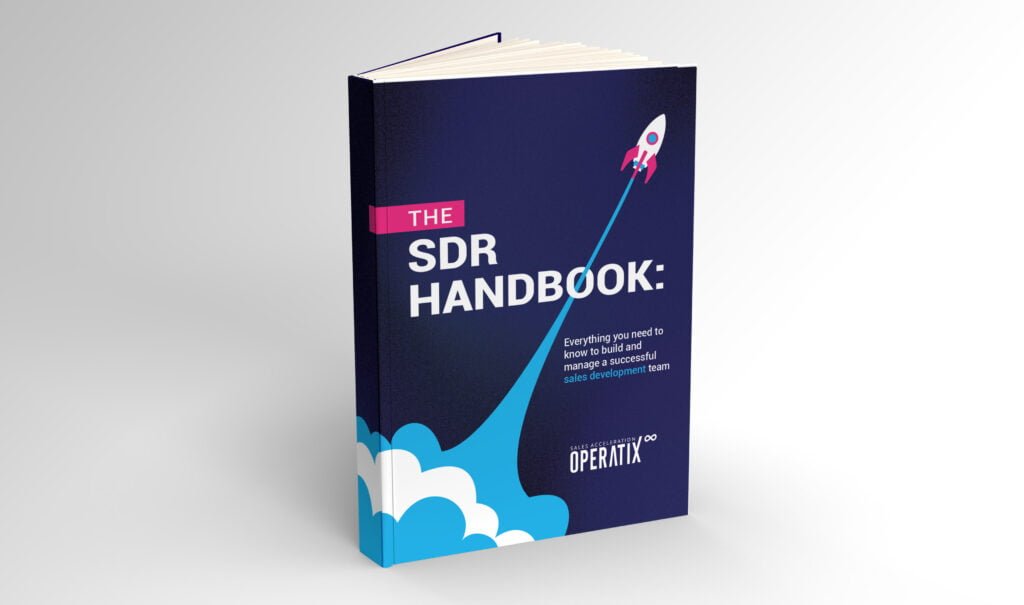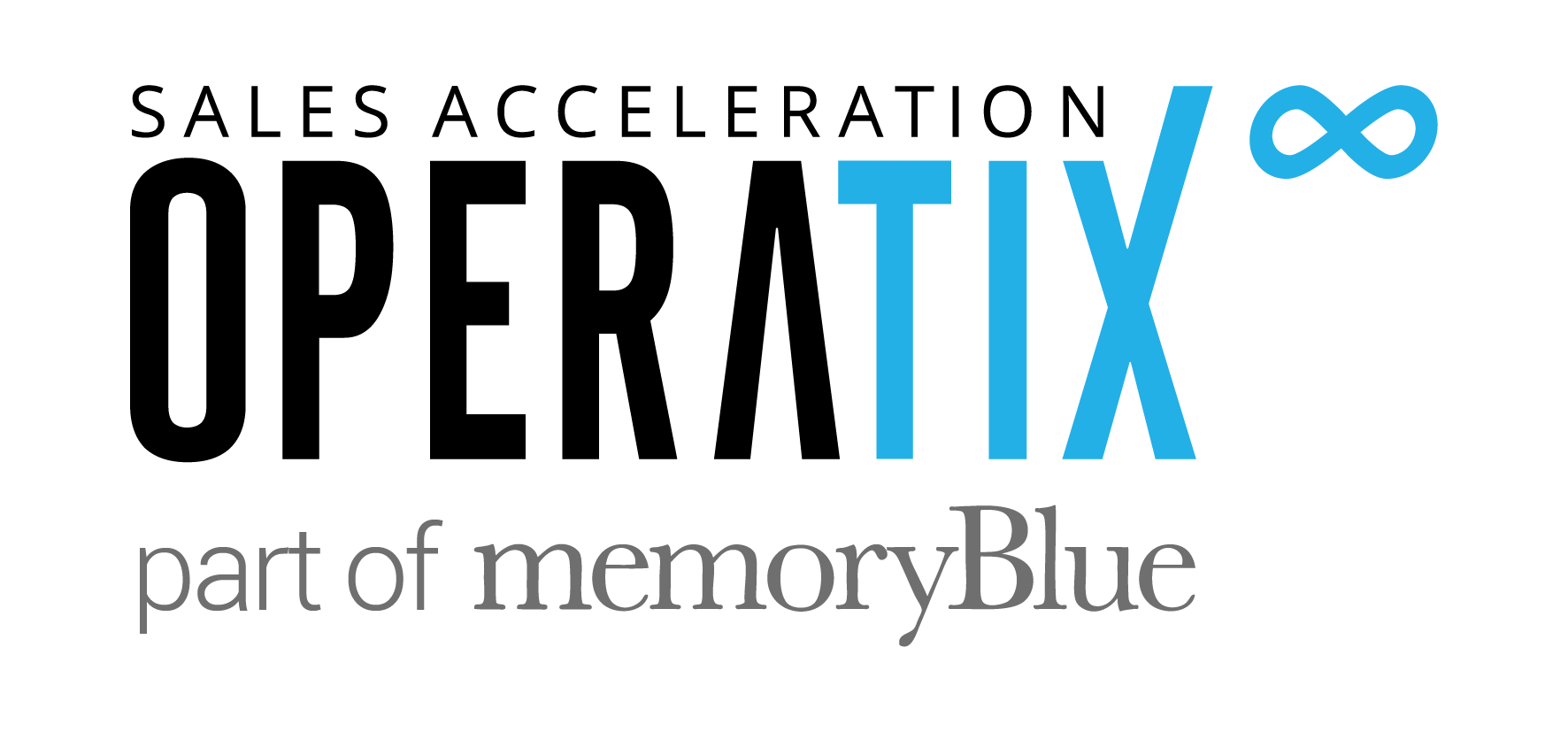Recruitment is the very first step in building a successful sales development team, but many organizations fail to take into account the importance of having a methodical SDR recruitment process.

It can be all too tempting to browse someone’s LinkedIn profile and be lured in by promises of instant results, yet forgoing a structured SDR recruitment process could be your downfall. Before starting your search, you must first understand what characteristics and soft skills fit your team as well as how to actively seek them out. After all, a candidate will say what they think you want to hear, so you must be more tactical about your approach.
To understand how to build an iron-clad SDR recruitment plan, we spoke to Kitti Toth, Head of Talent Acquisition at Operatix. She talks us through not only how to go about recruiting a first-class sales development professional, but also what core competencies to actively seek out in a candidate.
This SDR recruitment guide is part of our SDR Handbook – a free comprehensive guide to building and managing a sales development team. Download now for more tips and expert advice.
Step One: Understanding the Traits of a Great SDR
When it comes to developing your SDR recruitment process, don’t underestimate the importance of digging beyond results and data. A candidate may have impressive sales experience on paper, but do they have the right traits to work at your business? While they may have been top of the leaderboard at their previous company, do they have the skills and qualities necessary to successfully pitch to your specific target market?
Training can develop the candidate’s skill set and building their tech stack can give them all of the tools needed to get the job done, but igniting the natural passion, perseverance, and qualities needed in a successful salesperson is much harder. Cultural fit is also important, as you want the new
candidate to thrive within their new team and environment.
“People make mistakes when it comes to cultural fit -if you hire someone who is not a right cultural fit for your team, they won’t be comfortable and probably won’t last very long within the business,” Kitti says, “For example, someone who is very introverted or doesn’t like a target-driven, high-pressure sales environment won’t be a good fit. It’s a crucial element. You need to find someone who doesn’t mind picking up the phone dozens of times a day.”
Another factor is defining how much experience you would like your candidates to have. Are you willing to pay more for representatives with a sales background, or are you willing to invest in training for those who don’t have a previous track record? There are benefits to both options – less experienced candidates are more mouldable, but will take more help and time compared to those with a history in sales.
The exact traits you should look for will vary depending on not only the needs of your business but that of your clients. However, those seeking to build their sales team should consider the following:
Curiosity
Successful salespeople aren’t stagnant – they have the initiative to question processes, adapt to market changes and develop their skills. Curiosity in a sales environment is more important than many realise, ensuring they have the desire to learn rather than becoming complacent and stuck in their ways.
Coachability
It’s not only important to look at the candidate from the perspective of what kind of salesperson they are now, but also what they have the ability to evolve into given the right training. They shouldn’t shy away from change and challenges, reflecting a willingness to learn in order to grow as a professional.
Drive for Success
It’s no secret that while a career in sales is rewarding, it has its challenges – objections and rejections are an unavoidable part of the role, so finding someone who isn’t afraid of either is vital. Those without a drive for success are more likely to give up at the first hurdle and accept these rejections, rather than manipulating the conversation to work in their favour.
Passion and drive are core values of most successful sales teams, ensuring that representatives stick around and get results when the going gets tough. They’re driven by numbers and want to consistently raise the bar month on month, squeezing as much potential out of every lead as possible.
Confidence
Call reluctance is a common occurrence in the world of cold calling, but it can have dire results on a salesperson’s success. When interviewing candidates, ensure to tailor some questions to dig deeper into how confident they are with cold calling, objection handling and holding their own in a conversation – after all, these are all key qualities a salesperson must have in order to succeed.
Assertiveness
From the outside looking in, many people would assume that a successful salesperson must be domineering, assertive and aggressive. In actuality, they must strike the right balance between these traits and being empathetic, understanding and, above all, a good listener.
An overly insistent approach will likely result in more resistance from the prospect. After all, nobody likes to feel as though they are being forced into making a decision, particularly when receiving an unexpected cold call. Equally, a salesperson can’t be overly docile and submissive or they’ll struggle to get past the initial ‘no thank you’ that prospects often give.
Only you can decide the level of assertiveness you desire in your sales team, but it’s recommended to find someone who is optimistically persistent but not militantly pushy. Those overly aggressive with their tactics may find that the prospect will clam up, while those who use an empathetic ear to listen to their client’s needs will gain a lot more from the conversation.

Step Two: Building an SDR Recruitment Plan
Once the desired traits of your ideal candidates have been identified, you can begin to tailor your SDR recruitment process to target and appeal to them. Understanding the type of person is equally as beneficial to potential candidates as it is for you – after all, you don’t want to drag someone through the entire interview process if they don’t have the core values or qualities your team needs.
“As there is such a high demand for SDRs, sometimes people are more lenient and accept candidates that wouldn’t normally fit the bill,” Kitti says when asked about common mistakes, “They may have a gut feeling that the person is not a good fit, but they take the person on board because they need to fill the role. However, you shouldn’t be hiring anyone who is not an ideal fit.”
By building a detailed SDR recruitment process, you can proactively and tactically ensure the candidate has the core competencies commonly seen in top performers.
It’s not enough to simply have an idea of the type of person you’re looking to hire – you must flesh this out and create a concrete recruitment plan to effectively discover them. Setting out interview guidelines is essential, framing each question so that they target the specific qualities your team needs.
“We have an interview guide with different topics and traits, as well as how to assess them by asking specific questions. This means the recruitment team are able to understand exactly how to seek out the core competencies you’re looking for in a candidate.” Kitti says.
The Recruitment Process
Here at Operatix, every external hire begins with an initial screening call with the recruitment team. This initial screening shouldn’t be overly in-depth, but rather answer the key questions laid out in the SDR recruitment plan mentioned above.
“We begin by accessing the CV and look to see if it’s a fit for what we’re looking for,” Kitti explains, “Then, the recruitment team would initiate a 30-minute conversation with the potential SDR to access basic things such as their general knowledge about Operatix, their previous experience, understanding of objection handling, core calling preferences and targets.”
Following this, Kitti recommends the following steps:
- Psychometric testing – helps uncover a candidate’s strengths, weaknesses and characteristics in a more tactical manner, allowing you to judge if they’re a right fit for your business and role.
- Call with the hiring manager – if they pass the initial call with recruitment and the psychometric testing, you should pass the candidates along to the hiring manager to interview them. Ensure they are aware of the core competencies you’re searching for, as well as guide the conversation by giving key questions to ask.
- Role play with the hiring manager – role-playing a cold call will allow the hiring manager to review the candidate’s skills, confidence levels, objection handling skills and knowledge of sales. They don’t have to be perfect at this stage, but you should look for their potential.
Each step should be planned meticulously, ensuring all of the recruitment team and hiring managers are aware of what makes a good candidate. While perfection isn’t possible, there are key traits that are vital for success in sales.
Here are the key questions Kitti recommends asking during the interview process, and why they are important:
- Tell me about yourself/previous roles/targets. What made you apply for this role, and what do you know about Operatix? – Besides getting to know the candidate, you want to see how comfortable they are pitching themselves from the start. The ideal candidate would give you a short but detailed summary of their previous experiences.
- What aspects do you most enjoy in a sales role? And least? – Honesty is important, and sales is difficult. In their job, they are bound to deal with difficult people, roadblocks in the process, rejections and failed deals. When you get an initial answer, make sure to ask follow-up questions to uncover their approach when it comes to difficult moments. This question can also alert you to weak areas.
- If you were hiring someone for this position, what qualities would you look for? – We want to see if the candidate understands what it takes to be a successful salesperson, what they find important and what qualities they will strive to bring to the table. The ideal answer to this question would focus on the qualities relevant to the role not promoting themselves. We want to see people who consider being target-driven, a team player and having good communication are must-have skills for this role.
- How do you know you can sell? – You want to hear a confident answer. The ideal candidate would be sure of their abilities and be happy to give you examples of their previous targets achieved. A good answer is one that reveals their unique way of moving a sale forward. Make sure to ask follow-up questions to learn more about their mindset throughout that success, as well as the way they dealt with any hurdles and even the way they celebrated this sale.
- What have you done that has beaten the odds? – The candidate is forced to open up and be honest, whilst allowing the interviewer an opportunity to explore how the candidate handles challenges.
- What have you done that has beaten the odds? – The candidate is encouraged to open up and be honest, whilst allowing the interviewer an opportunity to explore how the candidate handles challenges.
- Tell me about a time you used your creativity to overcome an obstacle. What’s your approach to handling objections? – Objection handling is the main element of this role. You want to hire people who can think outside the box and are comfortable enough to not take no for answer. The ideal candidate would be able to give you a specific example of a time when they overcome an objection. Avoid candidates who will answer this question like I would call them back another time, etc.
- What are your development areas? What have you done to address these? – This question mainly focuses on self-awareness. You want to hire a candidate who is honest about their weakness. Prompt them on what they have done to work on them. Candidates who will give you an answer which flatters them as a weakness is not a good sign (such as working too much, perfectionist). You want to see real weaknesses.
- Tell me about a time you persuaded others to accept your idea – The ideal candidate is someone who can solve problems and articulate a solution that can influence people to action. We don’t want someone who can bully others to get their way, but rather someone who can think critically about problems and communicate their ideas well.
- Interviewee questions – It is really important that the candidate has questions for you. Every candidate should come with pre-prepared questions for the interview. This shows their interest in this specific position.
Each question is designed to go under the surface of a candidate, uncovering their natural characteristics to ensure they are a good fit.
As for psychometric testing, you can find resources here: Criteria Corp, testcandidates, Thomas
Once a candidate has been selected, its important to set them up for success if they accept the position. Ensure they understand what their daily activities will be, as well as how many calls or touchpoints they are expected to make. Explain what other metrics their performance will be judged upon, as well as any behaviours they are expected to display during their time at the company.
It’s important to do so in an understanding, supportive manner so they’re left feeling excited and motivated. Give them the opportunity to ask questions in the lead-up to them starting and beyond, giving them the contact information of their manager, as well as the HR department.

Chapter one summary points:
- Understanding the traits and qualities of a great SDR is an essential part of hiring candidates that not only sell well to your ICP, but also gel with your current team and culture.
- Build a document that your recruitment team can refer back to when hiring candidates to ensure there is a clear and scalable process in place.
- There are multiple steps to take to test core competencies of candidates in a tactical manner, all of which are important.
- Steps include psychometric testing and role-play, both of which will allow you to see the qualities of the candidate as well as their potential for success.



